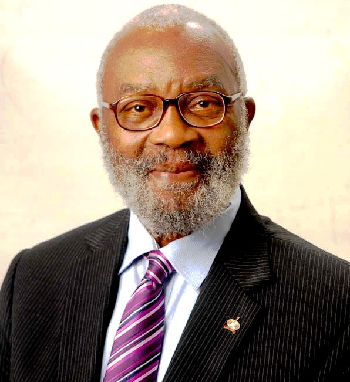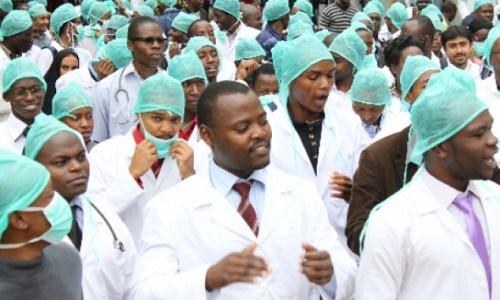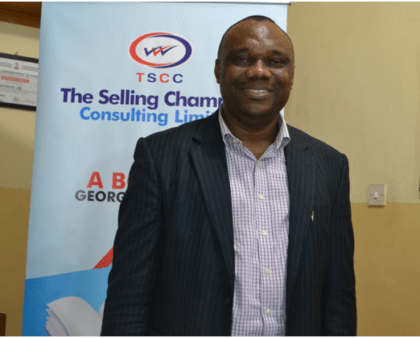1 should be used when there is a contraindication to NSAIDs
2 is more toxic than NSAIDs
3 occurrence of diarrhea and vomiting are used as an index to review therapy
A 1, 2, 3
B 1, 2 only
C 2, 3 only
D 1 only
E 3 only
Swiss pharmacist Dominique Jordan was on Saturday, 1 September, 2018 elected as president of the International Pharmaceutical Federation (FIP). Mr Jordan, a community pharmacy owner and former chief executive officer of the Swiss Association of Pharmacists (pharmaSuisse), has served FIP for over a decade including as chair of the federation’s Board of Pharmaceutical Practice since 2014.

In his election statement, Mr Jordan said: “Around the globe, health systems face changes due to new trends and demographic, political and economic challenges. It is time for FIP to rethink its role and its benefits for members, partners and society.”
As a president of pharmaSuisse for 12 years, Mr Jordan led advances in the pharmacy profession in Switzerland, which included the introduction of a postgraduate title for hospital and community pharmacists that is recognised by the federal government, the introduction of a number of remunerated new pharmacy services and the implementation of an International Organization for Standardization compatible quality management system, allowing the evaluation of pharmacies.
“Taking into account the work of past presidents, I will give new impulses to grow and use the unique potential that our federation has, gathering science, practice and education under one roof. It will be my priority to steer the evolution of FIP regarding its structures, its governance, its procedures and its missions to be in phase with the needs of our members and partners,” he said.
Mr Jordan will take office on 7 September. The FIP presidency is a four-year term. Outgoing president Dr Carmen Peña will continue to serve FIP as immediate past president.
Mrs Dorcas Olukemi Shonibare is the director of nursing services (DNS) Lagos State Ministry of Health (LSMOH).
Born over 50 years ago in Ijeshatedo, Lagos Mainland, she had both her elementary and secondary education in Surulere, Lagos.

Her passion for nursing took her out of Lagos to the University College Hospital (UCH) Ibadan, where she enrolled for the Diploma in Nursing programme, and soon became a Registered Nurse. Thereafter, she attended the Lagos State School of Midwifery Ikoyi and graduated as a qualified midwife.
Not done with her thirst for knowledge and expertise, a focused and diligent Shonibare soon returned to the University of Ibadan for a bachelor’s degree in Nursing Education and, later, a master’s degree in Nursing.
Shonibare commenced her nursing career as a staff nurse in private hospitals in Lagos. Not long, however, her dedication and commitment earned her an employment in the Lagos State civil service. She became a clinical instructor of nursing and midwifery students in 1995 under different administrations. She was privileged to work with three Directors of Nursing Services in Lagos State Ministry of Health.
The rare opportunity of working with three directors enhanced her gleaning of qualitative knowledge, which propelled her rising through the ranks, from staff nurse/midwife, to clinical instructor, to deputy head of school, Lagos State School of Midwifery, to head of school, Lagos State School of Midwifery to assistant director of nursing, LSMOH, and now director, nursing services, LSMOH.
The Lagos State DNS is an adept at coordinating nursing issues at tertiary, secondary, and primary healthcare levels, as well as in educational and industrial nursing experience. A highly motivated team player, with a strong and charismatic personality, Shonibare has got over 10 awards and over 45 presentations at seminars, workshops and conferences to her merit.
She is happily married and blessed with children.
People with talent make it into the limelight and become known in their fields. However, the ones who do not have strong character rarely finish well. This is because people cannot rise beyond the limits of their character.
Good character will prevent talented people from taking shortcuts. Some brilliant university dons have been implicated in plagiarism and academic fraud. They would have succeeded without dishonesty but because of bad character they fell into the temptation of various types of fraud. Dishonest computer experts have got into cybercrimes. Banks are suffering losses of depositors’ funds through Internet fraud.

John Luther said, “Good character is more to be praised than outstanding talent. Most talents are to some extent a gift. Good character, by contrast, is not given to us. We have to build it, piece by piece, by thought, choice, courage and determination.”
Bad character has been the cause of failure for talented people who would have otherwise succeeded. You may know of some first class brains in the university who could not make it outside. They started well but somewhere, somehow some bad character trait brought their brilliant career to an abrupt end.
I had a schoolmate who was talented. He was an all-rounder because he was excellent in both arts and science subjects. But he was stubborn, disobedient and arrogant. He flouted school rules, disobeyed the school prefects and even the teachers. He absented himself from classes and went out of the campus without permission. Despite all these, he was on top of the class.
Ultimately, he was dismissed in his fourth year for gross indiscipline. The Principal gave him such a bad testimonial that no other school was willing to admit him. His education ended at that level. About ten years ago, I accidentally met him as a petty trader at Onitsha Main Market. He recognised me with some difficulty and called my name. From a brief chat with him, I learnt that he divorced his wife and disowned his only son. At that age (about 68 years) he was living alone in a one-room apartment in a low-class area of the town.
I used to know another talented person in the university. He studied Physics and made a first class and completed his PhD in a record time. Unfortunately, his weak character started manifesting soon after he became a professor and his appointment was terminated. Since then, he has been finding it difficult to relate with people.
Arthur Friedman said, “Men of genius are admired. Men of wealth are envied. Men of power are feared, but only men of character are trusted.” A distrusted character has an unshakable aura of untrustworthiness.
The value of character is extolled by a German proverb which says, “When wealth is lost, nothing is lost, when health is lost, something is lost; when character is lost, all is lost.”
Character is a major consideration in a workplace. Employers can keep workers with average ability but never very competent but fraudulent staff. I believe God uses people more based on their character than their talents. That is why Jesus is most of time concerned with the motive for our deeds.
God can use someone with good character and little talent than a man with lots of talent and little character. In the parable of the talents as narrated in Mathew 25: 14-30, the master rebuked the servant who was given one talent because of his wickedness (character). He addressed him as wicked and slothful servant. The motive for and our attitude to whatever we do is important.
I love to quote Colossians 3:23 which says, “Whatever you do, do it heartily, as to the Lord, and not unto men.” If our work is not done heartily, it is not regarded by God, however beautiful it may be. If we give a fat cheque to the church, not cheerfully but grudgingly, it is useless in God’s sight.
Your talent is given to you by God but He expects you to build your character to use the talent properly.
Researchers at the University of Guelph in Ontario, Canada have found that daily consumption of a 250ml glass of cow’s milk could lower blood sugar all day long as well as reduce the risk of type 2 diabetes.
The research conducted on 32 persons studied the effects of drinking 250ml of milk with breakfast, found that the protein in milk causes this effect by releasing hormones which slow down digestion, and also makes people less hungry later on.

According to the lead author, Professor Douglas Goff from the University of Guelph in Ontario, Canada, drinking milk could keep diabetes and obesity at bay.
He said: ‘This study confirms the importance of milk at breakfast time to aid in the slower digestion of carbohydrate and to help maintain lower blood sugar levels.
The findings published in the Journal of Dairy Science, and reported on Medical News Today, affirmed nutritionists advocacy on healthy breakfast, which encouraged people to add a glass of milk to their oat meal or cereals.
The Canadian researchers said the discovery is important because type 2 diabetes and obesity are ‘leading concerns’ in human health.
Discussing their findings on the research participants, the scientists noted that participants did not eat beforehand and were given either high-protein milk, milk with a normal level of protein, or water made to seem like milk.
It was on record that they had this alongside oaty cereals and their blood glucose levels were then measured throughout the day.
Surprisingly, the study found milk reduced blood sugar after eating – more so than drinking water – and the more protein in the milk the more it reduced the sugar level.
This could help to combat type 2 diabetes because the condition is caused and worsened by uncontrollable levels of sugar in the blood.
The findings further revealed that the protein in milk makes people feel full, reducing their appetite, while milk contains two types of protein – whey and casein – and scientists changed the ratios in different tests to examine the effects of the different types.
They however found that digestion of whey protein makes people feel fuller more quickly, whereas casein protein provides a longer lasting effect.
In recognition of his outstanding achievements in the field of medicine, as well as his contributions to the growth of private medical practice in the country, Dr Umar Sanda, president of Healthcare Providers Association of Nigeria (HCPAN) has been bestowed with the prestigious Distinguished Medical Practitioner of Nigeria (DMP) award.
The award conferment which was recently organised by the Association of General and Private Medical Practitioners of Nigeria (AGPMPN) took place at the Annual Scientific Conference and General Meeting of the association in Lokoja, Kogi State capital.

The charismatic medical doctor, who has always been at the forefront of canvassing for better ways to handle pre-paid capitation in line with the National Health Insurance Scheme (NHIS) Act, was applauded all the way as he walked to the podium to receive the award.
At the 13th Annual General Meeting of the association held at Sickle Cell Foundation Centre, Idi Araba, Lagos on 14 December, 2017, it would be recalled that Sanda bemoaned how providers were displeased with the manner pre-paid capitation was gradually metamorphosing into post-paid which was totally against the NHIS Act.
According to him, “HCPAN therefore solicits that as earlier done when the scheme first started, HMOs should be paid quarterly for it to trickle down to providers. This ought to be the way to go.

“We also appeal that oversight functions which includes monitoring of both HMOs and providers be implemented by the regulators – NHIS. Anybody found wanting in this regard should be sanctioned.”
Klovinal, a brand of polyactive pessaries, which had been off the shelves in Nigeria for some time, is back in the market and has become popular in the management of vaginitis.
This was disclosed by the Regional Manager (South-West), Seagreen Pharmaceuticals Nigeria Limited, Pharm. Olalekan Ayodeji Orokotan, during the official re-launch of the drug at the opening ceremony of the 37th Annual National Conference of the Association of Community Pharmacists (ACPN), tagged “Edo 2018” and held at SIO Events Centre, Benin City, Edo State.

According to Orotokan, Klovinal, first introduced into the market few years ago, is specially formulated for the management of vaginitis caused by bacterial, fungal and protozoal organisms.
“Klovinal has a spectrum of antimicrobial activity that covers the three most prevalent forms of vaginitis, which are bacteria vaginosis, vaginal candidiasis and trichomoniasis, making it suitable for empirical or syndromic management of vaginitis including mixed infections.
“Seagreen’s zeal to respond to the yearnings of the healthcare industry for a solution that can provide sustained cure against vaginitis heralded the launch of Klovinal about four years ago. It has become a household name in the management of vaginal infection, and medical and other healthcare practitioners have come identify with it as a trusted name in the management of vaginal infection,” Orotokan said.
Speaking on the sudden shortfall of the product experienced by its customers earlier in the year, the Seagreen executive explained that it was caused by logistical challenges, as demand for the product overshot supply.
“Being a product that is not produced in Nigeria, it was difficult correcting the shortfall; but now, all those shortcomings have been overcome. And we can assure the healthcare providers and our numerous customers that Klovinal is back and better and stronger. It will always be readily available in all pharmacies across the country,” he assured.
Speaking further, he noted that Klovinal is a veritably unique product in its category, presenting a paradigm shift in the management of vaginitis, by moving from merely eradicating pathogenic species to a system where microbiological cure is augmented by re-establishing the dominance of the healthy normal flora.
The Association of Resident Doctors (ARD), Abuja chapter, says it will commence an indefinite strike on August 25.
The union made this known in a statement jointly signed by its president, Michael Olarewaju and secretary, Roland Aigbovo, on Wednesday in Abuja.
It said the impending strike follows the failure of FCT Administration to repay “obnoxious” tax deduction from July salaries of staff, among other demands.

The News Agency of Nigeria (NAN) recalls that the association had earlier condemned the tax deduction of N78, 000 from each of its members’ July salaries.
It said the current deduction was against the initial N36, 000 deductions imposed on the doctors.
The union noted that it had on Aug. 1, 2018 issued a-21day ultimatum effective from Aug. 3 to FCT administration, calling on the Minister, Muhammad Bello, to address the issue.
They listed other demands to include payment of first 28 days allowance of members effective from 2011, as calculated without further delay.
Other demands, according to them, include appropriate placement and payment of arrears to members who were successful in the 2016 promotion exercise.
“We totally reject the obnoxious and double taxation imposed on our members by FCTA management, which negates all scientific reasoning and Law of the Federal Republic of Nigeria,” the union said.
“The appropriate tax should be done using the Joint Tax Board/Personal Income Tax Act template (PITA) and all excess deduction paid back.
“We will be compelled to proceed on an indefinite strike for failure of the FCT administration to meet our demands on or before the expiration of the ultimatum which is Aug. 24,’’ they said.
Mr Olarewaju said, “Based on our investigations at the Health and Human Resources Service Secretariat, Federal Inland Revenue Services (FIRS) and FCT Inland Revenue Services (FCTIRS).
“It was revealed that the obnoxious tax didn’t follow the PITA template or other conventional means of taxation.
“We have earlier written the FCT Minister on the myriad of problems faced daily by our members regarding conditions of work and services delivery in FCTA.
“This is largely due to poor remuneration in comparison with our contemporaries in other health institutions and Ministries Departments and Agencies (MDAs) both in the territory and other parts of the federation.
“It is pertinent to say that a motivated workforce always give rise to an on improved work done and with regard to job satisfaction our members are in pathetic state,’’ he decried.
(NAN)
In our earlier article, we defined bad debt as the sum total of due receivables which are not collectible. It can’t get simpler than that. Most times, the stress, distraction and resources required to chase such debts can be so high that organisations consider it necessary to write them off.
However, this doesn’t mean that the debtor should declare a thanksgiving session and testimony time for freedom from such debts. It simply means that the creditor’s financial statement of the will indicate that the written off loans are compensated through some other way. This is needed to cleanse the balance sheet of the creditor.

Cleaning of the balance sheet means bad assets are replaced. This does not mean that the borrower is pardoned or got exempted from payment. His debt will remain and recovery measures against him will continue. So, if you are a debtor, when you hear that your debt has been written off, don’t rejoice yet.
Creditors may write off debts due to many reasons among which are:
Beyond accounts department
In most organisations, when a bad debt occurs, the accounts department comes under the heat of the management. However, from our experience, prevention of bad debt is not the responsibility of the accounts department alone.
An organisation can be likened to an organism, made up of many parts, systems or units. For the entire organisation to work perfectly well, all the systems need to be at their best, otherwise, the entire organisation malfunctions. Avoiding bad debt is thus a team work.
In any organisation where bad debt is prevalent, the following systems/units should review their operations and make necessary adjustments:
Contributory roles
Let’s look at the roles of each of the above departments in causing bad debt.
The human resources department owes the organisation a duty to ensure that appropriate steps are taken to guarantee the integrity of every staff recruited into the organisation. These include putting some measures in place to mitigate the risk exposure of the organisation, should any recruited staff act otherwise.
However, in most organisations, the HR department only stops at conducting interviews and issuing engagement letter. Most times, they know nothing more about an employee than the information that he or she conservatively provides. We have handled cases in which the organisation where a staff worked for so many years didn’t know his actual name. This means that such a staff wasn’t known beyond his facial appearance. This is bad.
The sales department constitutes the marshals of the company that execute in the field. It is the responsibility of this department to ensure that the sales team receives the right orientation on the sales and credit policy of the organisation. It is also its responsibility to report any observed anomaly by any member of the sales team.
This is important because there are often cover-ups among members of the sales force, which non-members of this team may find difficult to discover. Any organisation where bad debt is prevalent as a result of the activities of sales reps should hold the immediate line managers of the sales reps responsible and they will match the sales reps to their pranks and the bad debts will be drastically reduced.
The credit monitoring/control unit and accounts department in general is responsible for the accounting records and should perform its duties as the position specifies. This includes raising the red flags and alerting the various units when any customer or sales rep is nearing the credit limits in his transactions.
This function also includes reporting to the top management any observed irregularity in the credit transactions of the sales team. But, most times, in a situation where the accounts department colludes with the sales team, there will always be cases where some staff will overstep the credit limits with the intention to make it good shortly. This eventually leads to the accumulation of bad debts. Because the accounting team has failed in its duties, they try to cover it up in a manner that the organisation may not discover the damage in a long while.
Most times, the management can only find out when the accounting officer has left the organisation. This is why periodic auditing of the organisation accounts is very important.
The line managers to the sales reps are a very important part of the organisation and should be made to understand this. Their direct contact and relationship with the sales force positions them as their direct instructors and the ones from whose mouth they take the last command before hitting the field. As such, the sales reps also relate with them more closely, building a relationship that fosters performance when such relationship is positive. They can also communicate their mistakes to their line managers and take corrections from them.
However, in most cases where bad debt occurs, the sales rep also connive with their line managers. When this is the case, the line manager will go to any length to cover up for them.
If you have suffered bad debt in your organisation, fixing it up for you is a function of understanding your process. We will be addressing some of the ways sales reps mismanage the funds of an organisation in the next edition.
The board of directors comprises the pacesetters and decision-makers of the organisation. They approve the credit limits and also appraise the performance of the credit control unit and the accounts department in general. They call anyone to order when necessary. As such, in any situation where bad debt is allowed to accumulate to an alarming level, it is either they are not doing their job or they are doing it the wrong way.
This is the system in an organisation that every other system falls back on to enforce a decision which has been difficult for them to enforce, and this includes relieving non-performing staff of their jobs, no matter how important they think they are to the organisation.
If all these systems in an organisation synergistically play their roles, bad debt will be curbed drastically, with the resultant increase in the organisation’s cash flow.
By Frederick Ezenwa Ibeako
Blood transfusion remains a vital but limited asset in healthcare delivery, especially in sub-Saharan Africa where anaemia, linked majorly to malaria and pregnancy-related complications, is common. For many years, until the historic invention of Dr Otuanovwe Ovadje, there had been a dire need for a safe, affordable and cost-effective alternative to allogenic or homologous blood transfusion (the transfusion of blood from a compatible donor into a patient) in Sub-Saharan Africa. This was because of the increasing incidence of elective and emergency surgeries, shortages arising from a fall in blood bank supply, inadequate transfusion facilities and the lack of effective national blood transfusion services.

Incidentally, recent advancement in medicine had seen the emergence of sophisticated blood auto-transfusion devices, which salvage blood from a patient during and after surgery, by filtering the blood for reinfusion back into the patient. Unfortunately, however, these sophisticated equipment have certain peculiarities which make them unattractive to the healthcare systems of developing countries. Aside from the prohibitive cost of purchasing and maintaining them, their operations require the involvement of highly skilled personnel, as well as stable supply of electricity.
Then came the Emergency Auto Transfusion System (EAT-SET) by Nigerian medical doctor and brigadier general, Ovadje, and the hassles associated with blood transfusion in the sub-Saharan region became history. Ovadje’s invention is a simple and affordable device which helps to recover blood from internal bleeding organs of the body, if the process is begun within 24 hours of haemorrhage. The system is recognised as a better and improved alternative to the gauze filtration technique that used to be more common in Africa. It is also been used in other developing countries across the world saving millions of lives.
Apart from the fact that the EAT-SET device is simpler, affordable, and effective, compared to the auto transfusion techniques common in developed countries, the most important advantage of the EAT-SET is that it does not require electricity to function, considering the fact that power supply is one of the major challenges in developing nations.
The EAT-SET is made up of a transparent rigid capsule, incorporating a V–shaped micro-filter. The arrangements of its parts allow its adaptation to a manual source of low vacuum. The patient’s blood is drawn into a special collection container and later reinfused into the patient by gravity, after it has undergone a filtration process. The EAT-SET system takes about two minutes to process about 500 ml of blood.
Beginnings of breakthrough
General Ovadje started the EAT-SET project with limited funds (about $120) while he was working at the military hospital Ikoyi, Lagos. He was able to attract the interest and attention of many funding partners and collaborators due to the ingenuity and reliability of the technique. His research drew the attention of the Nigerian military government who provided equipment and facilities for his research. It also attracted financial support from United Nation Development Program (UNDP) and World Health Organisation (WHO), which also helped in executing the project. Many other privately owned companies offered financial support for the research and also for the establishment of the EAT-SET company.
The effectiveness of the EAT-SET was first demonstrated by Ovadje at Lagos University Teaching Hospital (LUTH) and Ayinke Hospital (LASUTH) to the World Intellectual Property Organisation, which sent some delegates from Geneva to witness the use of the device in Nigerian hospitals. This achievement was presented at the world congress of the International Committee of Military Medicine (ICMM) in Augsburg, Germany, in June 1994, and published in the journal of the ICMM in 1995.
Background and education
Born 20 December, 1954, in Evwreni, Ugheli, Delta State, Nigeria, Ovadje received his primary education at Peter & Paul Primary School, Ughelli from 1960 to 1966, and his secondary education from St. Ambrose College, Usiefrun, Ughelli from 1968 to 1972. Thereafter, he proceeded to study Medicine and Surgery at University of Benin from 1976 to 1981. Ovadje did his national youth service in with the Nigerian military. After that, he entered the Young Officers Medical Course, at the Nigerian Army Medical School in 1983. He was then drafted to the Staff College Junior Division in 1985. During his active service, Ovadje served as house registrar (from 1988 to 1994) and medical consultant (from 1994 to 1996) before becoming chief medical consultant in 1998.
In the course of his highly distinguished military career, Ovadje was the head of Nigeria’s Integrated Community Case Management (ICMM) Delegation in 1994, 1996, 1998, 2004, and 2005. He was an exhibitor at the following: the Armed Forces Medical Conference, 1989; ICMM Congress, Augsburg Germany, 1994; ICMM Congress in Beijing, China (1996); ICMM Congress Vienna, Austria, 1998; 26th International Exhibition, Promex’ Palexpo, Geneva, 1998; WHO Exhibition, All African Anaesthelogy Congress Sheraton Hotel, Harare, June 1997. He was also a chief delegate to the World Congress Military on Medicine at different times, giving lectures in the United States of America, Germany, China, Zimbabwe, Austria, and Lesotho in South Africa.
Awards and recognitions
Ovadje’s invention and social contributions to humanity have earned him several awards and recognitions from renowned national and international bodies. In Addis Ababa Ethiopia, 1995, he was jointly declared the best scientist in Africa by Organisation of African Unity, OAU (now African Union, AU) and the World Intellectual Property Organisation (WIPO) which awarded him a gold medal for his invention. He equally received the Chief of Army Staff Award (1992 and 1995). He received Presidential Commendation from General Ibrahim Babangida, Sani Abacha, General Abdussalam Abubakar, Chief Olusegun Obasanjo: in 1992, 1995, 1998 and 2000 respectively. He also received the National Council of Health Commendation in 1996.
Ovadje was awarded with the Promex Silver Medal award, 1998, in Geneva, Switzerland. He was first African winner of WHO SASAKAWA award, in Geneva, Switzerland, in 2000. Other awards include World Bank Institute award, in February 2000; ARCO Gold Medal, Blood Transfusion Society of England award, London, UK; P. Morgan Chase Health award at the Tech Museum awards for Technology Benefiting Humanity, California, USA, in November 2002; Army Council Medal, Nigerian Army Abuja, Nigeria; 100 distinguished Nigerians Centenary Awards by ex-president Goodluck Jonathan; Face of Hope award, New Jersey, USA; Forces Services Star, 1986; Mentorious Service Star, 1992; Officer of the Federal Republic, 1998. He was also chosen on merit as one of the celebrated Nigerians in area of knowledge, research, and invention by Afrikanwatch.
Not only is Ovadje known for his numerous awards, but he is also renowned in many national and international professional associations. He is Fellow, West African College of Surgeons; life member of the Association of Military Surgeons of the United States (AMSUS); member, Association of Military Surgeons of the Federal Republic of Austria; member of the Technical Working Committee of the International Congress of Military Medicine. He is also a Member of Order of the Niger, MON; and Member of the Order of the Federal Republic of Austria, OFR.
Although retired from the Nigerian Army, Ovadje maintains ties and communication with medical research works across the globe. He is into a new field of Medicine that has to do with anti-aging and disease reversal. He promotes herbal screening and is one of those who believe that the cure for obstinate diseases will come from tropical Africa.
The inventor and veteran military doctor is a highly sought-after international public speaker and has been invited to speak at different organisations, including Drexel University in Philadelphia, where he conducted a study on the use of medical ozone in the management of HIV.
In my book, The 11 Irrefutable Principles of Success, I talked about the “Principle of Assimilation”. The level of your ‘‘knowledge reservoir’’ is a function of what you have taken in overtime. The more you invest efforts to develop the inner-you by assimilating the right information, the better you become. Your performance in any setting is a function of the things you know. Performance sets you apart in the sales world.
How are you developing yourself? How many books have you read – books that will equip you to do better in your industry? How many capacity-building events have you attended this year? Do you believe in personal development? Who is your mentor? Where do you spend most of your time? Who do you spend your time with? You need to sit down and provide answers to these questions because they define the real you.

Knowledge distinguishes you
It is natural that when you develop competence, you advance in what you do. Today’s competitive and advanced world is waiting for people who are proficient in what they do. A salesman who displays expertise in his job is likely going to be on top of his game. Buyers would naturally flock around the salesman who knows more and speaks more about his product. Buyers buy from smart salesmen.
A salesman’s proficiency in product knowledge and market information is a function of the salesman’s ability in seeking information that will enable him advance in these areas. A salesman who has more market information in a given environment and under the same circumstance would have miles of advantages more than his less informed competitors. Buyers buy from experts. People buy from salesmen who have shown reasonable level of dependability. Developing capacity is one of the ways that ensures trust in what you do. The more you increase in knowledge and ability, the more you attract people to your side.
What you know is your reality
Salesmen and other professionals should not wait for their employers before enrolling in activities that will expand their knowledge. This aspect is vital because I have seen professionals make this mistake. What you know becomes your reality. You are appraised by what you know. Employers assign employees to various positions as a result of the level of their knowledge and performance abilities. Buyers buy more from the salesman who has more capacity and knowledge of his product and environment. You limit yourself when you don’t have information about your environment. Industry knowledge is a necessity in sales. You should know what happens around your industry to be abreast with market information. Sales superstars are researchers. They always look out for vital information.
Knowledge is a commodity
The things you know have direct link to the things you can do. Your knowledge will later translate to aptitude. You only give out what you know. Knowledge is truly a commodity. Organiations look out for folks who are highly skilled and performance-driven to buy them off – from their places of work! Knowledge is a product everyone wants to buy.
The place of knowledge in the world of performance is always noticeable. The man who is knowledgeable in his calling always stands out in the crowd. People notice outstanding individuals. Top performance is usually conspicuous. You are what you do. Onlookers are more interested in observing your performance than listening to your beautiful speeches! It is better to perform more and talk less than to talk more and perform less. What distinguishes two individuals in a competition is the ability in each of them. The more the ability, the more chances you have to excel.
Knowledge makes you an “intrepreneur”
Think and work like an intrepreneur. The intrepreneur is an individual who sets himself apart because of his level of commitment. He goes all the miles to get things done. He is not the owner of the business but he is innovative and brings in new things that will bring about better results in the organisation.
The truth is that the intrepreneur wouldn’t have been able to do much if he had not been prepared from the beginning. The intrepreneur’s drive is a function of the things he deposited within him overtime. You cannot do more than you know. If you want to do more, you have to know more. If you want to sell more, get ready to know more.
Please get Books by George O. Emetuche: The 25 Unbreakable Laws of Sales, The Selling Champion, The Art of Selling, The 11 Irrefutable Principles of Success and Everything is Possible, from:
Pharmanews Vendors, Laterna Bookshop, Oko Awo Street, Victoria Island, Unilag Bookshop, Jumia, Vog & Word Bookshop, Osata Supermarket, Opebi, Ikeja, CSS Bookshop, Broad Street, Lagos Island, Victory Drugs, Festac, Terra Kulture Bookshop, Tiamu Salvage Crescent, Victoria Island, Bible Wonderland, Alaka, Surulere, Glendora Bookshop, Ikeja Shopping Mall, CIBN Bookshop, Banker’s House, Adeola Hopewell, Victoria Island, Jed Mega Stores, De Palms, Lekki, Hub Mart Outlets, Jumia, etc.